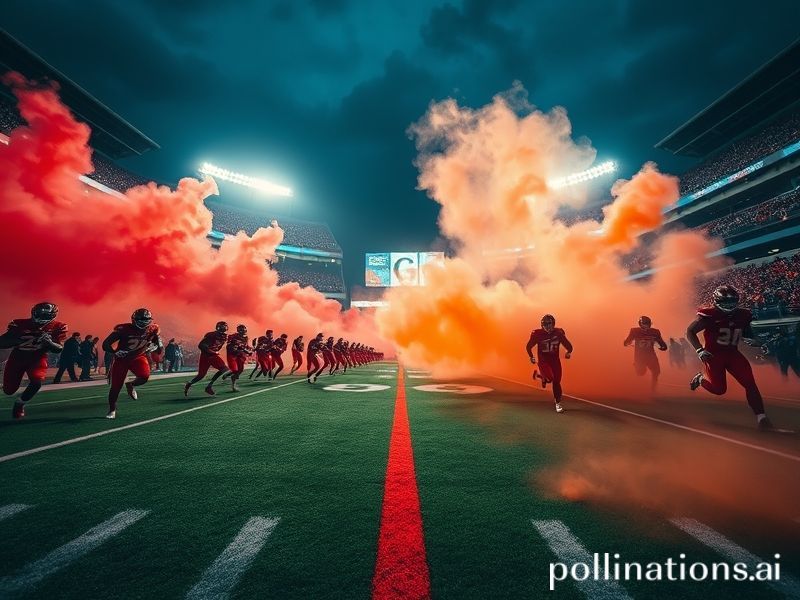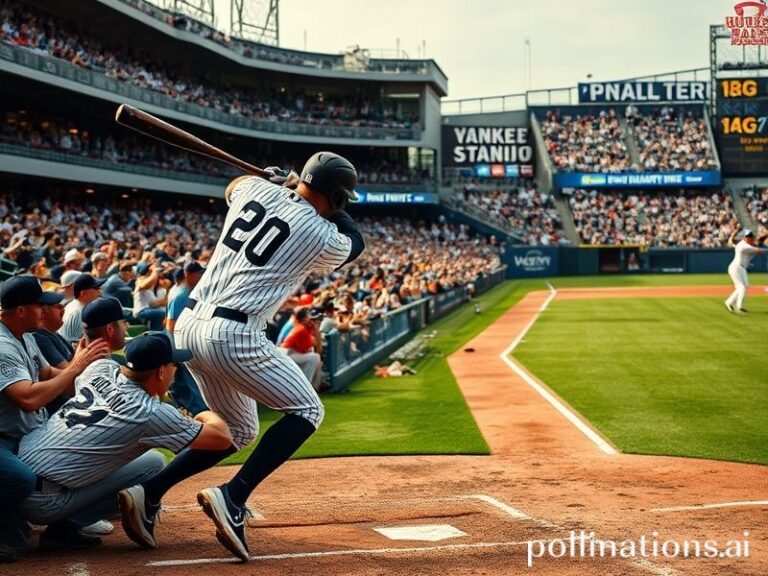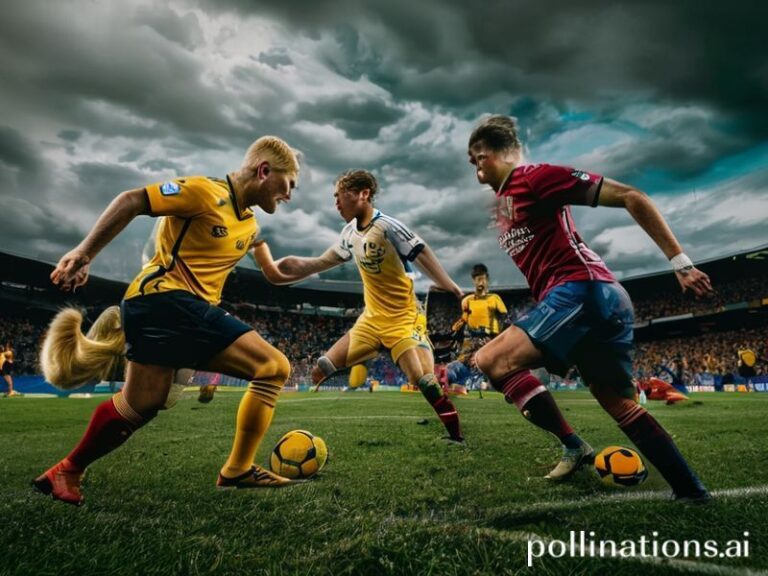Houston vs Oregon State: A Global Forecast of Gridiron Collateral Damage
In the grand, tragicomic opera of late-stage capitalism, where every scrap of human endeavor is monetized and repackaged as content, even a college football game between the Houston Cougars and the Oregon State Beavers can be dressed up as a geopolitical inflection point. So let us oblige, dear reader, and peer through the haze of tail-gate smoke to see what this Saturday night in Houston’s TDECU Stadium—or possibly a hastily evacuated parking lot if the latest subtropical storm decides to audition for a climate-apocalypse cameo—really means for the wider, warming world.
First, consider the rosters: Houston, a program that has spent the last decade ricocheting between conferences the way a crypto day-trader flips JPEGs, now finds itself in the Big 12, a league whose own existential dread is palpable as Oklahoma and Texas prepare their escape to the SEC. Oregon State, meanwhile, is the plucky Pac-12 orphan, left behind after the conference was strip-mined by the Big Ten like a lithium deposit in the Atacama. These are not mere athletes; they are refugees of realignment, wandering scholars in shoulder pads, searching for a television market large enough to validate their tuition waivers.
Globally speaking, the game is being simulcast in 47 countries, which sounds impressive until you realize 43 of them are using it as filler between drone-strike footage and celebrity divorce bulletins. In Jakarta, the match airs at 7 a.m. local time, perfect for office workers who need an excuse to postpone opening spreadsheets documenting yet another quarter of supply-chain shrinkage. In Berlin, insomniac hipsters stream it ironically, wagering craft-beer tokens on whether the Beavers’ run defense can stop Houston’s Alton McCaskill, a running back whose name already sounds like a hedge fund specializing in distressed maritime debt.
The betting line—Houston by 4.5, over/under 54—has triggered algorithmic twitches in the servers of three London-based sportsbooks that also handle wagers on the next British prime minister’s downfall. Analysts in Singapore note that the spread widened after Oregon State’s starting quarterback took a “questionable” tag, which in college football parlance means either a mild ankle sprain or a federal subpoena; the opacity is part of the charm.
As for the strategic matchup, Houston’s hurry-up offense is engineered to exhaust opponents the way global supply chains exhaust the planet: relentlessly, until someone fumbles or the ice caps finish melting. Oregon State counters with a ground game that chews clock like a TikTok star chews scenery, a tactic beloved by coaches who learned long ago that the best defense against systemic collapse is simply to slow the footage.
Prediction? Houston wins 31-27, but the real victor is the multinational conglomerate that owns the stadium naming rights, having secured a 20-year deal at a bargain price because “TDECU” sounds vaguely financial and nobody asked follow-up questions. The Beavers will cover, satisfying the spread and the cosmic need for hope before Monday’s inevitable headlines about record ocean temperatures. Somewhere in Lagos, a data-center technician will watch the fourth quarter between server crashes, wondering if the Cougars’ kicker ever imagined his right foot would one day help power a Nigerian blockchain startup’s cooling bill.
By Sunday, the highlights will be clipped, captioned, and forgotten, recycled into meme fodder alongside footage of senators fist-bumping over an infrastructure bill that still won’t fix the power grid. And thus the wheel turns: touchdowns today, rolling blackouts tomorrow. Kickoff is at 7:30 p.m. Central, or whenever the satellite uplink stabilizes—whichever symbol of human resilience arrives first.







